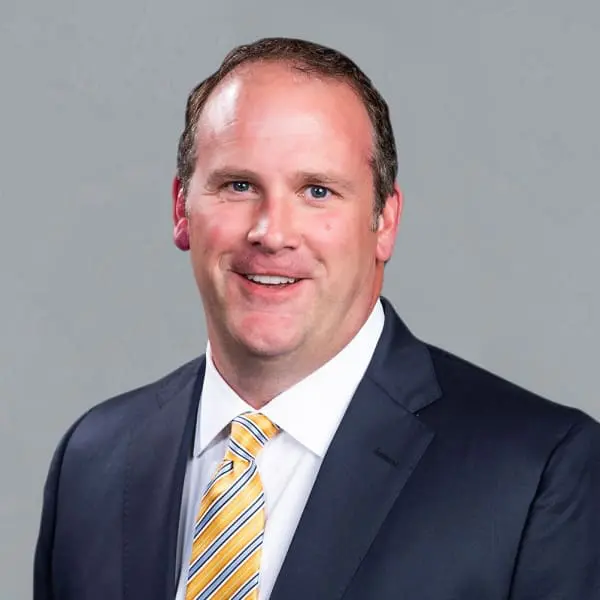
Did you sustain injuries due to a negligent or dangerous action by a medical professional in Alabama? In this situation, you may have a chance to file a medical malpractice claim with our team at Heninger Garrison Davis, LLC.
We have the experience and legal know-how to handle medical malpractice lawsuits for clients like you. We explore cases involving surgical errors, birth injuries, medication errors, and other mistakes by healthcare providers. You can get immediate assistance from a personal injury lawyer in Alabama.
Find out more about medical malpractice claims by calling or filling out our online contact form.
What Is Medical Malpractice?
Medical malpractice happens when any healthcare professional – including doctors and nurses – injures a patient through an act of negligence. The National Institutes of Health (NIH) provide extensive information about these actions, which often involve a breach of the medical standard of care.
A medical malpractice attorney can review your situation to see if you qualify to file a claim for medical negligence. Our law firm believes in holding healthcare professionals responsible for their dangerous actions, which can occur during everything from childbirth to a routine surgical procedure.
Doctors who fail to uphold a proper standard of care endanger and injure patients, potentially leading to a lawsuit.
For a free legal consultation, call (205) 326-3336
Is Medical Malpractice Dangerous?
Johns Hopkins reported that up to 10% of all deaths in the U.S. come from acts of medical negligence. Fatal medical errors may leave your family needing legal assistance to build a wrongful death claim in Alabama.
A medical mistake could also leave you dealing with serious health effects. Some acts of malpractice can result in severe permanent injury or death. Your medical malpractice lawyer can hold healthcare providers responsible for the effects of their dangerous actions.
Why Choose Us for a Medical Malpractice Claim?
Our firm has worked hard to develop a strong reputation in healthcare litigation. We take a serious approach to the screening of cases with an eye toward the vigorous prosecution of claims of substantial merit.
We recognize the importance of ensuring medical professionals avoid litigation where poor results come from something besides professional negligence. However, we will not shrink from our commitment to pursue legal accountability and redress for victims of medical care that falls below the standards the law requires.
Because details can change within your malpractice case, you must find a medical malpractice lawyer with experience handling cases where doctors and medical staff have made clinical errors resulting in personal injury to you or someone you love. Do not rely entirely on your doctors and other medical providers to protect you.
When Should You Contact a Medical Malpractice Lawyer?
Even if you feel you are not ready to file a suit, consult one of our qualified lawyers as soon as possible so that you will know your options. We do not charge any fees upfront.
In fact, we will only charge attorney’s fees if we obtain a financial settlement for you. We won’t get paid a legal fee if you don’t win.
What Funds do You Get After an Act of Medical Malpractice?
A medical malpractice attorney in Alabama can help you seek funds to cover all your expenses after a mistake from a healthcare worker. Our team works to determine if a medical professional failed to uphold the standard of care, and if we find evidence of malpractice, we can bring you funds to cover your:
Medical Bills in Alabama
A medical malpractice settlement may allow you to secure funds to cover brain damage, internal injuries, and other severe consequences of medical malpractice. We help clients secure funds for emergency care, rehabilitation, and medication.
Loss of Income in Alabama
Our law firm can work to bring you funds to cover the wages you lost during your recovery from medical malpractice. We also look at the money you may lose throughout your life if the medical mistake leaves you with a permanent disability.
Non-Economic Damages in Alabama
We also look into non-economic damages associated with medical mistakes. These losses can cover your mental anguish, pain, and suffering after an accident. We’ll review possible damage caps and other complications with your claim when you contact us for help.
How do Lawyers Investigate Medical Malpractice?
Our legal team works aggressively to investigate your case and gather evidence after a dangerous medical procedure. We often work with medical experts to assess the actions taken by doctors, nurses, and other healthcare providers.
Expert testimony from experts who understand the level of care you should have received and the doctor-patient relationship can strengthen your legal claim. We may question witnesses to the medical error and review the history of the hospital or medical facility where your accident occurred.
Contact us and hold medical care providers responsible for their dangerous or deadly actions. We’re ready to step in if you receive an incorrect diagnosis, premature discharge before receiving medical care, or the wrong medication.
What’s the Time Limit on Medical Malpractice Claims?
You must file your medical malpractice claim before the statute of limitations expires in Alabama to hold medical professionals accountable for their dangerous actions. The court can prevent you from seeking financial recovery if you wait too long to proceed with your case.
Your lawyer can monitor this deadline. Find out more about your available time with a medical malpractice law firm like Heninger Garrison Davis, LLC.
Speak to Us About a Medical Malpractice Case
You can work with our team at Heninger Garrison Davis, LLC, for cases involving doctor and hospital malpractice. We’re ready to focus on your actual damages, bringing you funds to cover your losses so you can move forward with your life.
Find out more with a medical malpractice lawyer in Alabama. Call or fill out our online contact form to get started.
